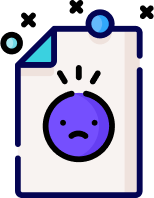

Programming Language
Learning a programming language can provide a
wide range of benefits, including:
1. Problem-Solving Skills: Programming languages teach you how to
break down complex problems into smaller, more manageable parts and develop
logical solutions.
2. Computational Thinking: Learning a programming language helps you
develop a structured approach to problem-solving, which can be applied to
various domains and disciplines.
3. Career Opportunities: Proficiency in programming languages can
open up a wide range of career opportunities in software development, data
analysis, web development, and more.
4. Understanding of Technology: Programming languages provide insight
into how software and technology work, which is increasingly important in
today's digital world.
5. Creativity and Innovation: Programming languages allow you to
create and build new software applications, games, websites, and other digital
products, fostering creativity and innovation.
6. Automation and Efficiency: Programming languages enable you to
automate repetitive tasks and improve efficiency in various processes, both in
software development and other fields.
7. Collaboration and Communication: Learning a programming language
can help you communicate more effectively with technical teams and collaborate
on projects that involve software development.
8. Analytical Skills: Programming languages encourage you to think
critically and analyze problems from different angles, which can be valuable in
various professional and academic contexts.
9. Adaptability: Proficiency in programming languages equips you with
the ability to learn and adapt to new technologies and tools as they emerge in
the rapidly evolving tech industry.
10. Logical Reasoning: Programming languages require you to think
logically and methodically, which can improve your overall problem-solving and
decision-making skills.
Overall, learning a programming language can provide a strong
foundation for technical and analytical skills, as well as open up a world of
opportunities in the rapidly growing field of technology and software
development.
Course description
Module 1: Introduction to Programming Concepts
Module 2: Core Programming Languages
2.1 Python
2.2 Java
2.3 JavaScript
Module 3: Specialized and Domain-Specific Languages
3.1 SQL (Structured Query Language)
3.2 Shell Scripting (e.g., Bash)
3.3 Domain-Specific Languages (e.g., R, MATLAB)
Module 4: Emerging Languages and Technologies
Module 5: Capstone Project
Additional Considerations:

0 Reviews
Laudantium iure aut
